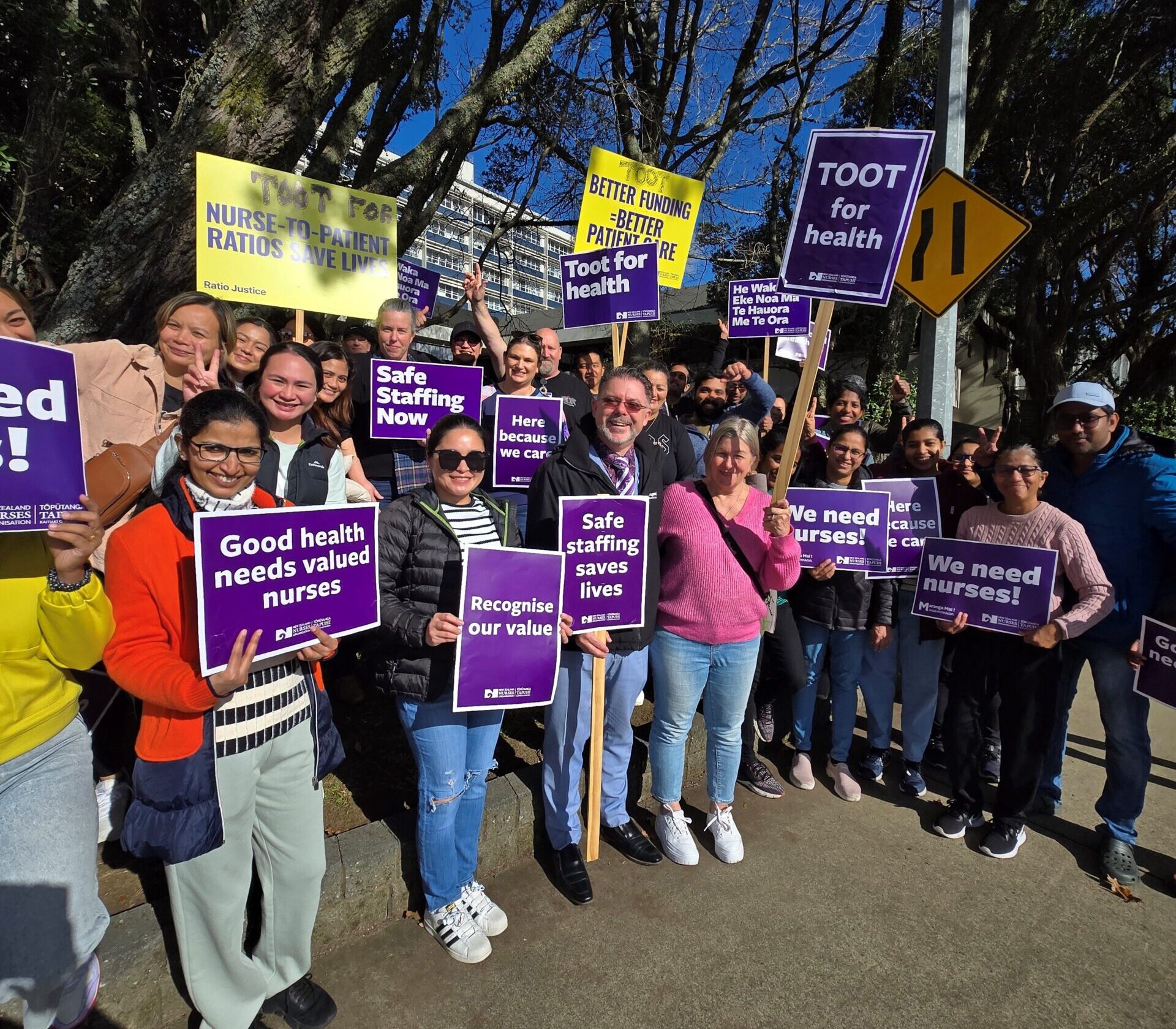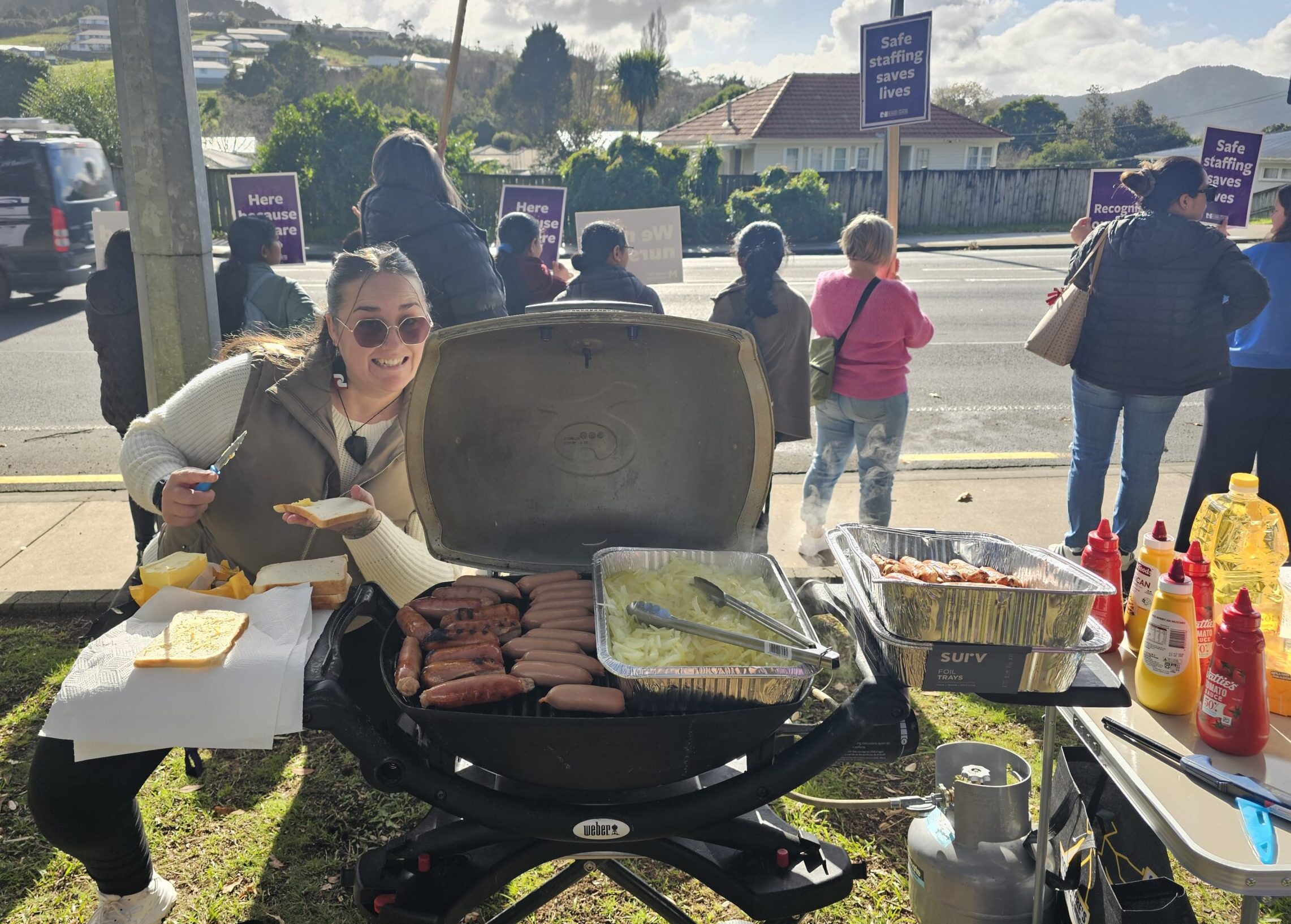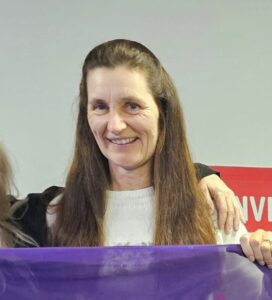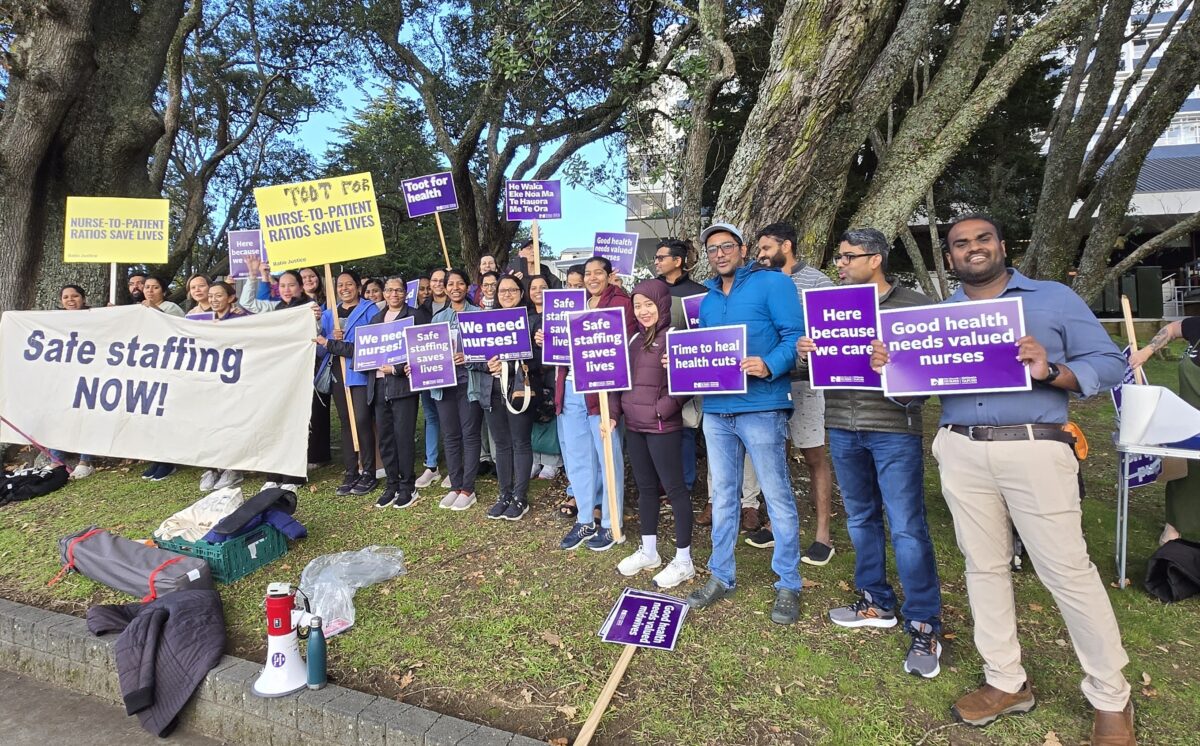NZNO delegate Steph Moule said the picket had been high energy and gone “really really well” with high levels of support from the public, the mayor and doctors — including Association of Salaried Medical Specialists delegates.
‘Basically we haven’t got enough staff to be able to cover when people are off sick.’
“It’s good — we’re doing what our public wants us to do,” she told Kaitiaki.
Moule said she hoped Te Whatu Ora would reconsider its 2024-26 collective bargaining offer of a one per cent pay rise this year, and invest in its hospitals to be safely staffed.

“They’re crushing us. We want to care for our patients properly but the more budget cuts they make . . . it’s affecting patient care. Nurses want to be able to give the best care they can.”
Te Whatu Ora acting northern deputy chief executive Mike Shepherd has disputed the hospital is understaffed, telling Kaitiaki there were no longer vacancies in the perioperative department.
“While NZNO has suggested staffing is one of the issues they are striking over, the current vacancy rate in the perioperative department at Whangārei Hospital is currently only four FTE [full-time-equivalents] . . . and recruitment has occurred to these roles.”
‘Fair’ offer?
Shepherd also said he believed the pay offer was “fair” while “affordable”, and urged nurses to return to bargaining.
Moule said it was less about vacancies than not having enough staff in the team to cover the workload, which meant nurses were constantly being asked to come in on their days off.


“Basically we haven’t got enough staff to be able to cover when people are off sick,” she said. “They rely on our goodwill to give up our rest day and come and cover acute theatre. . . . So if they keep doing that, to save money, we’re more fatigued and more likely to make mistakes, so it will impact on patient safety.”
Moule said the region had high health needs, which included its health workers, who deserved to rest on their days off.
‘What they’re feeling, we’re all feeling across the board.’
“We haven’t got great health outcomes in Northland, she said. “We all live here — we are those statistics.”
Vacancies also took a long time to recruit to, she said.
“We’d like to see our employer do some meaningful negotiations with our team around our collective agreement. But also to actually start addressing our public health system and put some money into it.”

Whangārei nurse and delegate, Chantelle Thompson, joined her perioperative colleagues on the picket line, to show her support.
‘We’d like to see our employer do some meaningful negotiations with our team around our collective agreement.’
“What they’re feeling, we’re all feeling across the board,” she told Kaitiaki. “I work in surgical services so the effects on them, roll onto us on the ward.”
“We support them in what they want to achieve . . . we are in it all together.”
At Whangārei Hospital today, surgical admission unit (SAU) staff went on strike first at 7am, followed by theatre nurses at 11am then post-anaesthetic care unit (PACU) nursing staff at 3pm.
Thousands of Te Whatu Ora members at nationwide union hui this month called on Te Whatu Ora to return to the bargaining table with a better offer or face nationwide strikes




